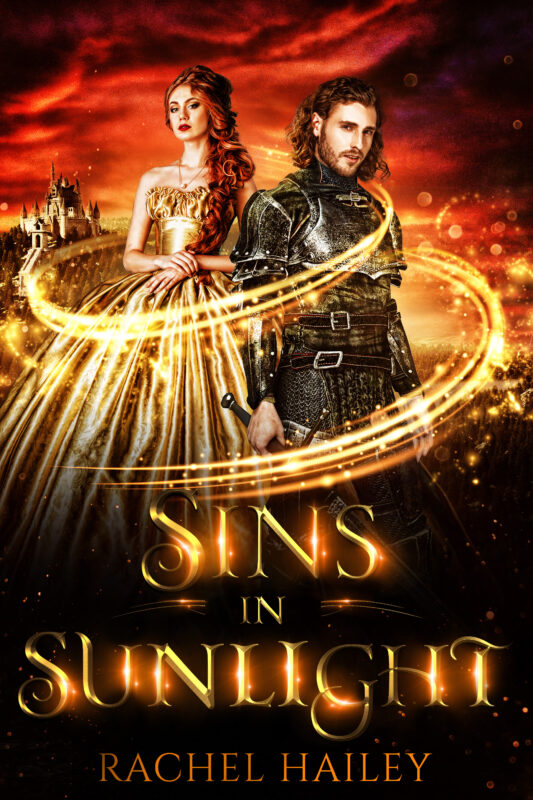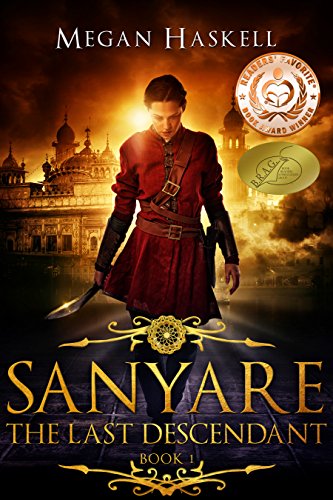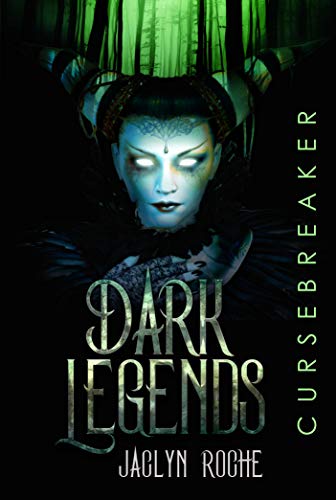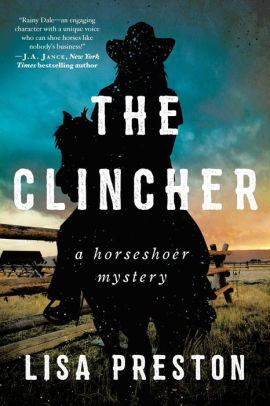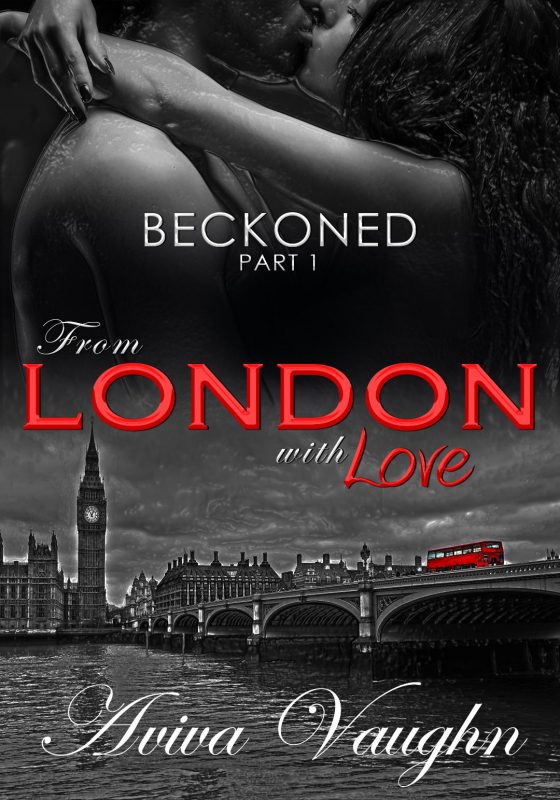Dear Extra Squeeze Team, How Do I Price My Novel?
February 7, 2020 by The Extra Squeeze in category Featured Author of the Month, The Extra Squeeze by The Extra Squeeze Team tagged as ebook pricing, February Featured Authors, Marketing, The Extra Squeeze, writing
Each Saturday in February we’ll be featuring The Extra Squeeze Team.
Ever wonder what industry professionals think about the issues that can really impact our careers? Each month The Extra Squeeze features a fresh topic related to books and publishing.
Amazon mover and shaker Rebecca Forster and her handpicked team of book professionals offer frank responses from the POV of each of their specialties — Writing, Editing, PR/Biz Development, and Cover Design.
Have you a question for The Extra Squeeze Team? Send them to us by using this handy link.

Dear Extra Squeeze Team, I’m ready to self-publish my first novel as both an ebook and a paperback. It’s a romantic suspense novel and about 90,000 words. How do I figure out what to charge? I don’t want to be too cheap, but I don’t want to be too expensive either. Help! How do I price my novel?

Rebecca Forster
USA Today Bestselling author of 35 books, including the Witness series and the new Finn O’Brien series.
I love that this author has provided so much information. Her query is objective, communicated the pertinent information and is focused. Kudos. Many authors – first time and seasoned – simply calculate how much money they can make at different price points and choose the highest one that they believe the market will bear. What they don’t take into account are market forces and there are plenty of them.
This lady is a first-time author intending to publish as an indie. It is clear that she understands her genre. I will assume her book is awesome. Now let’s look at what she is going to face. There are currently about 2,500 new books published through Amazon a day. She will be competing with seasoned, midrange and newbie authors all of whom are publishing books at the same time she is. Some will offer their books for free and others for $.99. Many will leave those books at these price points for promotional purposes with the objective of getting their books into as many readers’ hands as possible. They will be hoping to garner reviews. In my experience it takes about 100 downloads to get one review. That’s a lot of books you have to sell. If you overprice your work, no one will buy it. Spending $6.99 on an unknown will not be as attractive as receiving a free book or one at $.099. Many best selling authors (myself included) price their books at $3.99 and $4.99. Anything under $5.00 is considered a bargain book and is more easily promoted on advertising sites and book-dedicated social media sites. There are so many more nuances one can address regarding pricing but covering them all would be a novel in and of itself.
My advice to this author is to read over the above, take a look at the bestsellers in her genre and make a list of price points. I would include general thrillers in this list also because there is a ton of crossover between straight thrillers and romantic suspense. At the same time, assess how you are introducing yourself to the reading public. Do you have your website, your social media accounts, your branding in tip-top shape? Are book two and three almost done (indie publishing has taught me that readers will veer to an author with deep inventory because, if they like your work, they want to click for the next one). Does your cover scream quality? People pay a little more if it looks like the next big thing but not much.
To put this in perspective, I have published (traditionally and as an indie) over thirty books. I have experimented with many price points from $.99 to $6.99. $2.99 to $3.99 is the sweet spot (read Mark Coker’s blog post at Smashwords on pricing). You can make a good living at this price point but not without a heck of a lot of work.
Price this first book to sell, garner fans, ask for reviews, build up your profile everywhere and keep writing so that you have inventory. This is a long-haul profession. It looks like you’re ready for it. Good luck.
P.S. I price my paperbacks for minimal return. I might make $1.00 to $2.00. That is because I want them to be reasonably priced and I know that 97% of my business as an indie is in digital sales.

Jenny Jensen
Developmental editor who has worked for twenty plus years with new and established authors of both fiction and non-fiction, traditional and indie.
Two very successful authors and one savvy, marketer share this panel with me. I’ll leave the hard marketing advice to their tried and true experience and respond as a consumer.
I’m a champion of Indie publishing. I read a lot, all genres, and I love to discover new writers. Unfettered access to any voice that wishes to be heard is the outstanding feature of Indie Publishing. I know I’m not alone in this opinion so as a new, untested voice I salute your maiden voyage.
I download work by unknown authors at least twice a week. My price point for an unknown is from 0 to 1.99 and there are several criteria that prompt my choice: a compelling title, one that invites, intrigues or amuses always gets a second look at the cover and a close read of the story blurb. It’s that book description that’s the hook. It must be revealing to a tantalizing extent (no spoilers), descriptive of some feature that sets the book apart from the cookie cutter template of the particular genre — maybe a well-crafted sentence or two that reveals a great character, an intriguing setting or a particularly unique situation. It must include something of the challenge inherent in the plot — in other words, give me a reason to want to read the story.
This short sell copy reflects the writer’s style and skill so it’s critical that the voice I’m considering spending my time with comes through loud and clear. Poor grammar, clumsy wording and typos are an immediate reason to move on, as is a dry recitation of plot points. If the cover matches the level of professionalism and care reflected in the title and the description, I bite. It sounds like my perspective buyer self takes in these criteria in an orderly way. Not so; it’s the blending of all the features that makes a work by an untried author enticing.
Considering just how fierce the competition is it’s great to have access to various platforms where you can stand out. Whether it’s an offering on a Bookbub-ish bargain site, a platform like Indie Book Nexus or a genre specific site, this is your chance to cut yourself from the herd.
There are degrees of how strong the attraction of a book offering is. I’ll always try a .00 price point book if the presentation interests me. I don’t view that as a cheapened offering, rather I see it as an invitation. If I’m going to invest up to 1.99 then I need an assurance of quality. The care and passion of the book sell copy is reflective of the care and passion in the work. It takes an excellent presentation to move me to my 1.99 limit. That hasn’t happen often for a new author with a stand-alone book. Of course, editorial reviews help — nice stuff if you can get it, but I don’t require that.
I’ll add that when I’ve fallen in love with a new author and she has no published work to move on to I am bummed. I vow to keep a lookout for a ‘next’, but it does not stay top of mind. A link to a mailing list for the next book’s release date is pretty good compensation.
You’ve made the decision to publish so I’m sure you’ve had the manuscript thoroughly edited and it is the best product you can provide to the reading public.
Invite every potential reader and if it’s a freely given invitation then know you’ll begin growing your audience. Wow me and I’ll pay for the next book. It’s an investment.
Ping Pong by Kidd Wadsworth
January 18, 2020 by Kidd Wadsworth in category Infused with Meaning by Kidd Wadsworth tagged as colliding worlds, tragic, writing
Author’s Note: In this piece I am trying to juxtapose two elements: one happy, another tragic. I want the reader to be tossed back and forth, knowing that these two worlds are about to collide. BTW this is a true story.
Ping Pong
Green never took on as many shades, or the Earth appear as lush, as in the summer of ‘92 in Ann Arbor, Michigan. Windows down, radio up, I drove, my newly minted sister-in-law in the seat next to me. I’d been married a blissful eight weeks. We’d eaten lunch at Red Hot Lovers, a delightfully greasy hot dog joint. I had the dregs of my Sprite in my cup holder, and she the last of her Diet Coke in hers.
Slowing, I came to a stop behind a sedan waiting to turn out into traffic.
We jammed to the beat, hands in the air.
Filling the crowded sedan were four Arab men in robes and two women in hijabs. One woman sat in the middle of the front seat, the other in the back on the right.

I drank the last of my Sprite.
The sedan driver turned yelling, pointing his finger. The woman in the backseat threw open the door. The man beside her, pulled her across his lap as she tried to escape. She thrashed against him. The second man in the backseat grabbed her. Her fist hit the back windshield. Her legs pummeled the first man as he reached out and slammed the door shut. The sedan, wheels squealing, sped out into the traffic. A car honked; another swerved.
I clenched the steering wheel, shaking.
As the sedan disappeared around a bend in the road, she whispered, “Did you get the license plate?
“No.”
“The car was white.”
“It’s going east on…” Frantically, I searched for a street sign. “what road is this?”
“I think it was a Chevy? Maybe a BMW?”
*
0 0 Read moreI HAVE A FRIEND WHO WANTS TO WRITE. . .
January 15, 2020 by Rebecca Forster in category The Write Life by Rebecca Forster, Writing tagged as etiquette, Family, mentor, mentoring, new author, writing
So my brother called the other day (actually 2 days into the new year) and said: I have a friend and she wants to write a book. Can you just talk to her and tell her everything you know? I already gave her your phone number.
I have five brothers and sisters, a mom and any number of cousins, in-laws and friends who have each made this request on various occasions. I am always happy to help new writers, but I’m not crazy about my phone number passed around. First, I was probably the only teenage girl in the world who hated talking on the phone and that hasn’t changed in the last 50 years. More importantly it is impossible to distill 30 plus years of writing and publishing experience into a quick conversation and have it benefit a new writer.
The good news is that there is email. Email allows me to put information into a manageable format, provide links to appropriate sites that will help the writer, and allow that person to save the conversation for future reference. Here are some thoughts for the author willing to pay it forward, the writer looking for help, and the brothers and sisters who love to share the author in the family.
THE REFERER: Ask (preferably not with the new writer standing in front of you) if the author has time to help and how they would like to be contacted. Always allow the author to beg off even though most won’t. Writing is a time consuming business and multiple requests can feel overwhelming especially when an author is in the middle of a big project.
THE REFEREE: Be prepared. This tells the author that you are willing to work hard. Preparation should include a basic understanding of what you want to write (genre, form, etc.) and your goal (traditional or indie publishing, to create a career, expand a hobby). Have a short list of specific questions. Don’t try to cover the entire industry in one conversation.
Be respectful. An established author has built her business through trial and error, hard work, rejection and acceptance. Often she has paid for classes and conferences. Respect her hard work, commitment, and risk.
THE AUTHOR IN THE MIDDLE: Be gracious and as effective as you can be. A new writer will be nervous speaking to an established author, so put her at her ease. Then remember that there is a fine line between useful information and too much information. Usually it is possible to tell how much the Referee can absorb from their first contact. If a new writer can’t articulate whether they want to be an indie or a traditionally published author start with the basics, direct this writer to blogs on publishing and offer recommendations for coaches and writing classes. The nuances of the industry would be lost on a true newbie.
Set parameters. I am always grateful when a new author asks if it’s okay to check back in. I love the request as much as I love to hear the progress. As new writers become grounded, their questions often help me rethink my work as much as it helps them move forward.

Don’t miss Lost Witness, Rebecca’s newest addition to The Witness Series, a Josie Bates Thriller.
Join over 2 million readers of The Witness Series!
0 0 Read moreThe Seven Challenges I Love About Writing Short Stories by Jerome W. McFadden
December 13, 2019 by Bethlehem Writers Group in category From a Cabin in the Woods by Members of Bethlehem Writers Group tagged as Jerome W. McFadden, Short Stories, writing, Writing Advice

Multi-award winning Jerome W. McFadden’s has had forty short stories published over the past ten years in a wide magazines, e-zines, and a dozen anthologies. He efforts have won him several national awards and writing contests, receiving a National Bullet Award for the Best Crime fiction on appear on the web in June 2011. His short stories have been read on stage by the Liar’s League in Hong Kong and the Liar’s League in London.
After receiving his B.A. from the University of Missouri, he spent two years as a Peace Corps volunteer in Casablanca, Morocco. Following his MBA from the Thunderbird Graduate School of Global Management (Arizona State University). He continued his peripatetic ways with corporate assignments in Houston, Istanbul, Paris, San Francisco, and Singapore, spending his spare time writing free-lance articles for American and newspapers and magazines. He morphed from journalism to short fiction in 2009. He now resides in Bethlehem, Pa. and is an active member of the Bethlehem Writers Group. His collection of 26 short stories, Off The Rails, A Collection of Weird, Wicked, & Wacky Stories, appeared in November, 2019.
The Seven Challenges that I Love About Writing Short Stories
1) You need to get into the story from the very start:
Every word in a short story matters. Time and space are limited. You cannot afford to waste a page or two describing the weather, building the setting, or giving the genealogy of your hero/heroine. You need to get to the guts of the action quickly, pulling the reader in with the first paragraph. By the end of the first page the reader should be aware of the famous 5 W’s of journalism: Who, where, when, what, with why possibly coming later.
2) You need to quickly define the core of the story:
Short stories follow only one trajectory — one arc — concerning one character (or a small group of characters) traveling through one primary crisis or concern. The crisis or concern is in fact one shattering moment in that person’s (or group’s) life that he/she must work through, successfully or unsuccessfully. Note: That shattering moment does not need to be violent. It could be emotional, psychological, mental, or spiritual, or other. But it needs to be challenging. *
3) You must develop your characters rapidly.
Characters must be construct with complexity, credibility, and emotion—in as little as a sentence or two. The writer must show character development while actively moving through the story’s narrative. You do not have time or space for the big old info dump. Instead, the writer needs to use clever dialogue, interactions, short flashbacks, and sharp imagery to develop the story’s characters.
4) You are allowed only so many characters in the story:
You are limited to a small cast of characters. A full cast might consist of only one or two characters. Any character you decide to introduce must bring something crucial to the story – or be eliminated. Bringing in a characters for “cuteness” or for “color” or just because you like the quirky character in your head, is wasting precious words and precious space in your story. A good rule: Any character that does not bring in two vital elements into the story needs to be eliminated forthwith.
5) Short stories require a strong pace and balance:
Recognize the descriptions and dialogues that slowing the story down, as well those that are those that are moving the story along. You must identify the best place to start, where to put the opening scene that hooks the reader, then maintain that hook to continue to pull the reader through the rest of the story.
6) Short stories teach you to trim the fat:
Short stories leave no time for easing into things (long descriptions, banal conversations, interesting but boring backstory, wild personal tangents). Short stories are just that—Short —but they must always pack a punch. This may be the ultimate skill to be learned from short story writing: Trim the fat. My favorite writing “rule” comes from the legendary writer Elmore Lenonard, ‘Leave out the parts that the readers skip.”
7) A great short story must create an emotional impact:
The stronger the better. And a great twist at the ending helps make the story memorable
An added note: The tools and skill you pick up from writing short stories are assets that can and probably should be used in your novel writing.
*This “shattering moment” is described lovingly and in full detail in Chapter 3 – The Big Key in James Scott Bell’s wonderful book How to Write Short Stories And Use Them to Further Your Writing Career.
A Selection of Books by Jerome W. McFadden
An Editor’s Ingredients by Jenny Jensen
November 19, 2019 by Jenny Jensen in category On writing . . . by Jenny Jensen tagged as Editors, working together, writing
A perspective client and I were in the first stages; you know, where you get a feel for one another to be sure of a good fit. It was a great exchange. She was funny and literate and serious and we quickly decided to move forward (I passed muster too!). Before she sent her manuscript she had one last question: What are the five things a writer should bring to the editorial table. Great question!
My response:
- An open mind
It’s understood that a writer’s work, partial or finished, represents an enormous personal investment. A lot is at stake here. As an editor I respect that. It’s my job to fully grasp the story’s intent and help the writer realize their vision. To make use of that the writer must have the clarity of thought to look beyond their own words and consider a different, well considered perspective. If I interpret a scene as night when the writer intended day it isn’t because I am too dim to get the intention. It’s because the scene as written did not convey the intent. And it’s likely that I will not be the only one who reads it as night. The writer must be aware and open enough to consider and appreciate input outside their box. - Flexibility
Change is likely required. If some aspect – character, setting, plot point etc. – isn’t right then it requires change and change requires flexibility. My job is to point out what doesn’t work and why. I suggest options, which is often the best way to illustrate why something doesn’t work. Sometimes my suggestion resonates with the author and they use it – always with their own spin. That’s grand and they are welcome to the suggestion but more often than not a writer understands the need for change and does so in a direction I never considered, and it works beautifully. That’s when I’m certain I’ve done my job – I’ve highlighted a weak point and the author sees the breach and jumps in with writerly eyes and fixes it. - A thick skin
Editing isn’t personal. I’m not afraid that my input might hurt feelings. I’m not viewing the manuscript through a friend’s eyes. I’m concerned only with the voice and vision of the work I’m reading. I, as with any good editor, will not hesitate to point out any and all flaws I see. Derisive criticism is a waste of energy and is never constructive. I don’t use it so the author must be able to view the criticism within the context of the story and not as a personal attack. We’re not in this to become BFFs. We’re in it to make the work fantastic. (Though it’s lovely to note that many clients have become warm friends.) - A working disposal system
Every writer has lovingly crafted passages they feel are superb. The words flow like melted chocolate, the character is brilliant, the setting is ripe with atmosphere. It reflects the best of your talents. But what if it doesn’t fit the rhythm of the story? It has to go. Same with all that carefully researched data. If it isn’t useful, if it doesn’t add to the tale, dump it. A writer has to have a ready and willing disposal system. Of course, it doesn’t impact the story to keep a file where all those brilliant bits can be held for future use. - Gumption
With writerly eyes wide open, a brain elastic enough to entertain new possibilities, a skin thick enough to repel the personal and a fully charged ability to delete any detritus, all the writer needs is the passion, the discipline…the gumption to implement the editor’s input. Rewrites are always part of the mix – sometimes just a few scenes, sometimes entire portions. Often it’s the small tweaks that need careful handling to improve the story. Unless the writer has the gumption to go that last mile our efforts are wasted. My edits aren’t meant to discourage but to invigorate, to jazz the writer to make the story shine.
And I love doing just that.
1 0 Read moreAffiliate Links
A Slice of Orange is an affiliate with some of the booksellers listed on this website, including Barnes & Nobel, Books A Million, iBooks, Kobo, and Smashwords. This means A Slice of Orange may earn a small advertising fee from sales made through the links used on this website. There are reminders of these affiliate links on the pages for individual books.
Search A Slice of Orange
Find a Column
Archives
Featured Books
SANYARE: THE LAST DESCENDANT
A woman torn between honor and survival…
More info →DARK LEGENDS: CURSE BREAKER
Kalissandra Doe has a to-do list worthy of the reincarnated goddess she could be.
More info →BECKONED, PART 1: FROM LONDON WITH LOVE
The regret of missed opportunity...
More info →Newsletter
Contributing Authors
Search A Slice of Orange
Find a Column
Archives
Authors in the Bookstore
- A. E. Decker
- A. J. Scudiere
- A.J. Sidransky
- Abby Collette
- Alanna Lucus
- Albert Marrin
- Alice Duncan
- Alina K. Field
- Alison Green Myers
- Andi Lawrencovna
- Andrew C Raiford
- Angela Pryce
- Aviva Vaughn
- Barbara Ankrum
- Bethlehem Writers Group, LLC
- Carol L. Wright
- Celeste Barclay
- Christina Alexandra
- Christopher D. Ochs
- Claire Davon
- Claire Naden
- Courtnee Turner Hoyle
- Courtney Annicchiarico
- D. Lieber
- Daniel V. Meier Jr.
- Debra Dixon
- Debra H. Goldstein
- Debra Holland
- Dee Ann Palmer
- Denise M. Colby
- Diane Benefiel
- Diane Sismour
- Dianna Sinovic
- DT Krippene
- E.B. Dawson
- Emilie Dallaire
- Emily Brightwell
- Emily PW Murphy
- Fae Rowen
- Faith L. Justice
- Frances Amati
- Geralyn Corcillo
- Glynnis Campbell
- Greg Jolley
- H. O. Charles
- Jaclyn Roché
- Jacqueline Diamond
- Janet Lynn and Will Zeilinger
- Jeff Baird
- Jenna Barwin
- Jenne Kern
- Jennifer D. Bokal
- Jennifer Lyon
- Jerome W. McFadden
- Jill Piscitello
- Jina Bacarr
- Jo A. Hiestand
- Jodi Bogert
- Jolina Petersheim
- Jonathan Maberry
- Joy Allyson
- Judy Duarte
- Justin Murphy
- Justine Davis
- Kat Martin
- Kidd Wadsworth
- Kitty Bucholtz
- Kristy Tate
- Larry Deibert
- Larry Hamilton
- Laura Drake
- Laurie Stevens
- Leslie Knowles
- Li-Ying Lundquist
- Linda Carroll-Bradd
- Linda Lappin
- Linda McLaughlin
- Linda O. Johnston
- Lisa Preston
- Lolo Paige
- Loran Holt
- Lyssa Kay Adams
- Madeline Ash
- Margarita Engle
- Marguerite Quantaine
- Marianne H. Donley
- Mary Castillo
- Maureen Klovers
- Megan Haskell
- Melanie Waterbury
- Melissa Chambers
- Melodie Winawer
- Meriam Wilhelm
- Mikel J. Wilson
- Mindy Neff
- Monica McCabe
- Nancy Brashear
- Neetu Malik
- Nikki Prince
- Once Upon Anthologies
- Paula Gail Benson
- Penny Reid
- Peter Barbour
- Priscilla Oliveras
- R. H. Kohno
- Rachel Hailey
- Ralph Hieb
- Ramcy Diek
- Ransom Stephens
- Rebecca Forster
- Renae Wrich
- Roxy Matthews
- Ryder Hunte Clancy
- Sally Paradysz
- Simone de Muñoz
- Sophie Barnes
- Susan Squires
- T. D. Fox
- Tara C. Allred
- Tara Lain
- Tari Lynn Jewett
- Terri Osburn
- Tracy Reed
- Vera Jane Cook
- Vicki Crum
- Writing Something Romantic
Affiliate Links
A Slice of Orange is an affiliate with some of the booksellers listed on this website, including Barnes & Nobel, Books A Million, iBooks, Kobo, and Smashwords. This means A Slice of Orange may earn a small advertising fee from sales made through the links used on this website. There are reminders of these affiliate links on the pages for individual books.

















